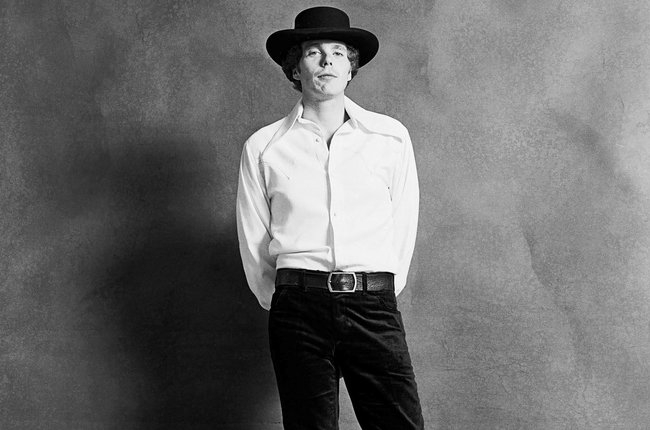Fearing a risk of violence if released from prison, a California court has denied parole to Jim Gordon, the Grammy-winning drummer serving a life sentence for killing his mother in 1983.
The decision, by the Board of Parole Hearings, marks Gordon's 10th denial and the first time his family and legal counsel have asked the state not to grant him parole.
Gordon backed many significant rock recordings of the 1960s and '70s, including Nancy Sinatra's "These Boots Are Made For Walkin'," Carly Simon's "You're So Vain" and, most famously, "Layla," as a member of Eric Clapton's band Derek and the Dominos. Gordon played with an understated yet distinctive groove on dozens of songs that became radio hits, and was known to his peers as the "only living metronome."
But at the height of his career, Gordon was diagnosed with schizophrenia. Combined with substance abuse, his mental illness threatened his professional reputation. Beginning in 1978, Gordon sought medical treatment at least 15 times, court records show. But he could not escape his mother's voice, which he claimed had tormented him for years. The hallucinations grew relentless, demanding that Gordon eat less, even stop touring.
To confront the voices, Gordon drove to his mother's house, where he struck her head with a hammer and also stabbed her. In 1984 he was sentenced to 16 years to life, and "remains an unreasonable risk of threat to public safety," according to the parole board's decision in March at California Medical Facility in Vacaville, where Gordon is jailed.
"I think he would be a threat to himself if he were to be released," said Jeffrey Hall, Gordon's attorney, according to a hearing transcript obtained by Billboard. "I think he'd hurt somebody else."
Amy Schief, who manages her father's finances but has no contact with Gordon, also suggested that parole would be premature. "Certainly our family has been traumatized by what happened," Schief said. "But it's been so many years and it doesn't really seem like he's going anywhere at this point."
Gordon has served 34 years of his life term, and will next be eligible for parole in 2021.
He got his professional break in 1963 at age 17, when he joined the Everly Brothers on tour in England. Gordon played professionally for the next 20 years, backing some of the biggest names in rock music on the road and in the studio, including Joe Cocker, Frank Zappa, Harry Nilsson, and George Harrison. In 1970, Gordon's work on Harrison's All Things Must Pass led to the formation of Derek and the Dominos with Clapton, bassist Carl Radle, and keyboardist Bobby Whitlock.
That group was short-lived but produced a giant hit with "Layla," which Gordon co-wrote. It was his greatest musical achievement yet had nothing to do with the drums; he played the song's signature melancholy piano refrain. (In her 2016 memoir, Rita Coolidge claimed she wrote that part with Gordon.)
"Layla" charted twice in two different years, peaking at no. 16 on the Billboard 200in December 1970 and reaching no. 10 on the Hot 100 in August 1972 -- long after the band had broken up. (In 1993, while in prison, Gordon won a Grammy for Best Rock Song for "Layla," following the success of Clapton's Unplugged, named Album of the Year.) The song has been streamed more than 30 million times, according to SoundScan.
When Derek and the Dominos disbanded, Gordon's popularity and work ethic earned him sessions that became monumental albums, among them John Lennon's Imagine, Gordon Lightfoot's Sundown, and Steely Dan's Pretzel Logic.
With that fast fame the turbulence of his drug and alcohol abuse never slowed, a lifestyle that doctors later testified had exacerbated Gordon's mental disorder.
"I think that people overlook that, aside from his obvious mental illness, Jim was a really great, gentle guy with so much untapped talent," drummer Rick Marottatold Billboard by email. "I wish that there had been a way for someone to stop the horrific events that sent him away for all of these years, but unfortunately we lived in an environment that didn't rescue people with that kind of illness. There was too much acceptance of strange behavior blamed on drugs and alcohol."
As Gordon told Rolling Stone in 1985 of the murder, "I had no interest in killing her. ... I had no choice. It was so matter-of-fact, like I was being guided like a zombie." His trial attorney later told The Washington Post that Gordon "truly believed he was acting in self-defense."
Today Gordon refuses contact with lawyers and declines to attend parole hearings. He is said to rarely leave his cell, and often resists medication. A 2005 document shows he was collecting $4,000 a month in royalties at that time, and was disciplined for giving some of that money to fellow inmates.
In November 2017, Gordon was again diagnosed with schizophrenia. Court records show he also suffers from delusions, a heart condition, and an enlarged prostate. Still, Gordon was deemed ineligible for California's new Elderly Parole Program, instituted earlier this year, which gives special consideration to inmates older than 60 who have served 25 years.
Gordon turns 73 in July. Yet despite having no record of violent behavior since 2001, the board determined that his mental health "remains dangerously unstable."





